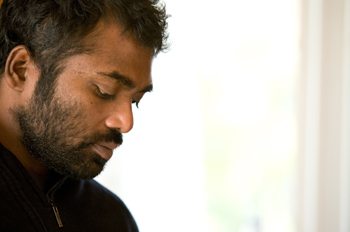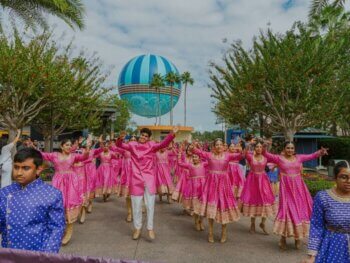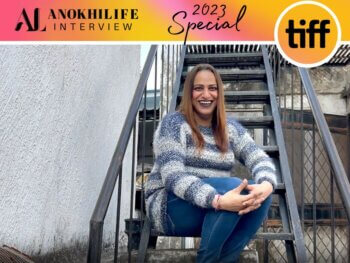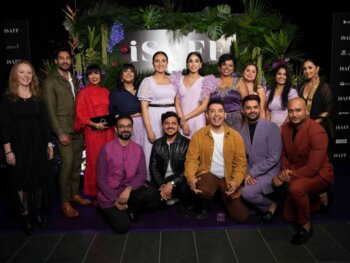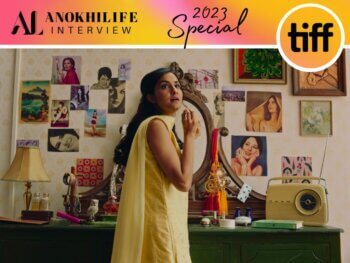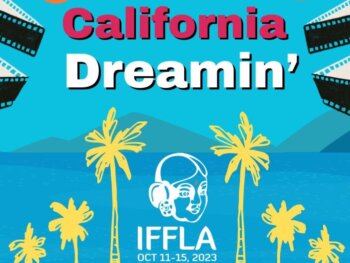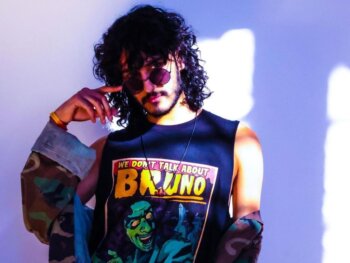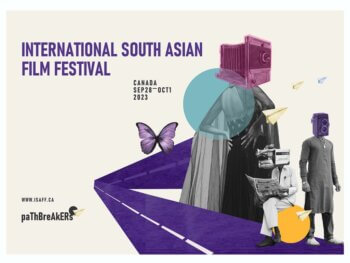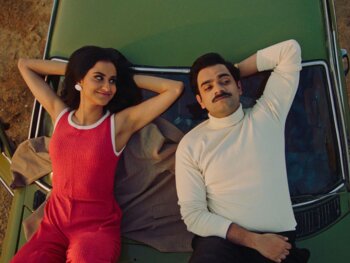We had a quick one-on-one chat with Rohan Fernando, the writer, director and producer of his first feature film, SNOW. This Sri Lankan Halifax native discusses the art of making movies, his first feature and how it's all about being in the present.
SNOW stars Kalista Zackhariyas, Ria Mae, Mohan Fernando, Achala Hewaarachchi, Himaly Fernando, Pardis Parker, Sobaz Benjamin & Alicia Orr MacDonald
Written & Directed by Rohan Fernando
Produced by Rohan Fernando & Suzanne Lively
Executive Produced by Ann Bernier
Composer: Aasif Illyas
Having a release of your first feature film must be exciting!
Yeah it is really exciting. We've been to festival audiences in the past with the film, but it seems very different to do a theatrical run. I guess in someways, there is a lot more pressure. In festivals you always have that guaranteed festival crowd. Now you are more like a lamb amidst a pack of wolves.
Where was SNOW shot:
The opening scene, the prologue [takes place] in Sri Lanka. That was actually shot in Belize. That was because our budget was very tight and we couldn't go to Sri Lanka with my actors. I was in Belize shooting another documentary so I took advantage of that. We built the interior of the hut in Nova Scotia.
How was the shooting experience?
The shooting schedule was eighteen days and I also worked with the actors in advance because a lot of them hadn't been in front of camera before. So I wanted to workshop for five days prior to shooting. It was intense and there was a lot of stuff to figure out with the characters and their relationship and what was possible for these non-actors to do. A lot of changes happened to the script [during filming] because I wanted them to be natural when they were acting. A lot of the characters shifted a bit, [making them] closer to the kind of people they are in themselves.
 Kalista Zackhariyas as Parvati
Kalista Zackhariyas as Parvati
How was it like working with Kalista Zackhariyas whom featured in our magazine, while she was working on the movie.
It was funny, when I first met her she was coached by Menakshi the casting director that I hired. When she came in [to the audition] she was dressed very humbly in terms of the character (Parvati). There is a real intensity about her. She has a real strength to her. And I didn't know what she was like in real life because she came in already in character. She auditioned amazingly well and it wasn't until after I met her than I saw that she wasn't this passive character. She is such a strong personality it was really electric in what came across on her face, her eyes and in her movements.
You shot this film in Cinema Verité style, what made you gravitate towards that kind of filmmaking?
I knew that I was going to be working with non-actors and wanted to give them as much freedom in movement as possible. So they weren't trying to remember their blocking, hit their focus points and deliver their lines on this point and that point — which can come across as very stilted.
I wanted fluidity from them and to go with themselves. I wanted the camera to play to them and not play to the camera. I shot a lot of my documentaries myself because it allows that kind of intimacy and you can react in the moment to what the character is doing. I really wanted to have that immediacy approach. It feels like the moment is captured rather than set up.
Tell me about the importance of a good screenplay.
A well-written screenplay is the foundation. You can't take a bad screenplay and make a good film. You can take a good screenplay and make a bad film. It sets the ideas that you are going to be playing with and bringing [them] to life. Particularly for me, dialogue is very important. Here, the dialogue was quite minimal because I came from a visual background as I was a painter and [had also] published a graphic novel.
It also helped the non-actors as I didn't have them say too much. There was a lot of dialogue that I did take out because the quality of Kalista's performance said so much that sometimes the words got in the way of the emotions.
So you, keeping the non-actors in mind, were rewriting every day?
It was rewritten all along the way. Probably because I come from a documentary background where the treatment is different from the footage that you get because you don't have control of the situation. I rewrote the film again with the material that I had during the editing process. Post-production was very long because of that reason. With five to six months of editing, I wanted to give it a lot of space and time for it to breathe and come back to it.
 Achala Hewaarachchi as Lakshmi
Achala Hewaarachchi as Lakshmi
Love to hear your thoughts on the captivating music, which to me also played an essential character in this film.
I wanted the music to also be very in the moment as well. Parvati is about being in the moment. She doesn't have a path anymore and her future is completely unknown. She totally exists in the present tense.
The quality of listening to the tabla and Indian classical music is [being] in the moment. You don't necessarily know where the music is going so it puts you in a state. I wanted to do this in the film. Asif Illyas, the composer, who is also from Sri Lanka, literally played live to the image intuitively. I would direct him like an actor. It wasn't a constructed piece of music. It was Parvati's thoughts [and her] mental emotional process. We wanted certain instruments and sounds to represent aspects of her emotions. The sitar represented her present state, the esraj represented the underwater experiences and her memories. Once he had that down, then he would add layers. Asif won best music at Atlantic Film Festival for SNOW and in 2003 for [my first film] Cecil's Journey.
What made you decide to move from documentary filmmaking to feature filmmaking with SNOW?
I was working in documentaries for 10 years and was always drawn to the dramatic side of documentary filmmaking. However, there are certain limitations with documentaries that you have to deal with. For instance, you can only achieve a certain amount of intimacy without crossing ethical boundaries with your subjects. I did a documentary on a man who lost his wife and daughter to the 2004 Tsunami in Sri Lanka. I saw profound emotion with that kind of loss and I wanted to go in there deeper. So I attempted to write what I felt that experience might be like, not having gone through that myself, but am able to relate to it with various losses I myself have gone through.
What advice would you give to upcoming filmmakers?
I certainly had resistance going in to this [field] but I think if you really want to do it, you have to rebel and take those choices. Part of being a filmmaker is about being a rebel and you have to go down the road less travelled. You don't necessarily have to go film school. You can start making films. And write. One of the things with young filmmakers because of the technology that is available today, don't develop the skills to write a good script. That is the core. And it teaches you so much. It teaches you about dialogue, editing and character which all have to be in the script.
SNOW is being released today, February 24, 2012 in Toronto and will be part of a nationwide roll out in select cities. For more information go to http://www.snowthefilm.com
BY HINA P. ANSARI
Sources: facebook.com, imdb.com, snowthefilm.com
Hina P. Ansari
Author
Hina P. Ansari is a graduate from The University of Western Ontario (London, Ontario). Since then she has carved a successful career in Canada's national fashion-publishing world as the Entertainment/Photo Editor at FLARE Magazine, Canada's national fashion magazine. She was the first South Asian in...


















































